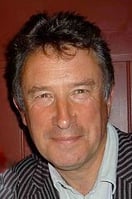Rural Round-up: A Passage to India
 John Wynn-Jones, Chair, WONCA Working Party on Rural Practice, writes:
John Wynn-Jones, Chair, WONCA Working Party on Rural Practice, writes:
“Alone we can do so little; together we can do so much” (Helen Keller) and this is so true when it comes to addressing the inequity that exists worldwide between urban and rural health care.
The WONCA rural family will be meeting once again in two months’ time in Delhi for the 15th WONCA World Rural Health Conference. It is this global collective approach that has made a difference over the last 22 years since we met in Shanghai in 1996 for our first inaugural conference. So much has changed in health care technology, yet Rural Universal Health Coverage (UN: Sustainable Development Goal 3.8) still remains a very distant goal.
The world is gradually urbanising, with people moving into mega-cities leaving an impoverished aging and vulnerable rural population with poor or no access to even the most basic health care. It is WONCA’s stated aim that everyone should have access to an appropriately trained family doctor working within a team of health care professionals and community health workers. We must strive to develop models of primary care that are community focused and patient centred. Our rural workforce must be socially accountable and fit for purpose. With this in mind the main theme of the conference will be "Healing the Heart of Healthcare: Leaving No One Behind"
We have travelled around the world with our conferences, regularly attracting over 700 delegates, yet this is the first time that we will be meeting in South Asia. This vast populous subcontinent has one of the largest rural populations in the world and its surprises me to think that it has taken us so long to get here. We have seen significant changes to rural health provision and access to care in the richer countries of the world, but we must now further concentrate our attention on rural care in Low and Middle-Income Countries.
We used our global Google group to identify learning and policy needs and as a result we have a needs-based extensive range of workshops and panels for you. The emphasis remains on the needs of low and middle-income countries and the sharing of good practice and innovations that work. This conference programme has been developed by young inspiring Indian colleagues and members of our global Rural Seeds network. The future of rural health care will be in their hands and not in ours.
The main conference starts on 26th April and runs through until 29th. However, there is much to occupy and inspire you beforehand. The opening ceremony is preceded by FISFA 2018, an International Short film and Arts Festival and RuralWONCA’s Assembly meeting. Everyone is welcome to join us for the Assembly. We want to tell you what we are doing, and we want to hear from you to set our future agenda. The conference organisers have arranged cultural tours after the conference and you can take part in practice exchanges. Please look on the website for more details. One exciting innovation is the “Ideathon” which is a competition for medical students on a rural health theme.
conference website
The range of topics in the main programme is extensive with emphasis on issues such as rural research, medical education, mental health, family violence, women’s issues, engaging with policy and much more.
If you have not registered yet, please do so. The organisers have emphasised that this will be a multidisciplinary conference working on the principle that if we learn together then we will also work together.
Finally, I wish to thank our colleagues from the Academy of Family Physicians of India and especially Dr Pratyush Kumar, Dr Raman Kumar and their young and inspiring organising team. We need you to come and join us in Delhi and help us make a difference around the world. We need you to come and leave a legacy as well as making changes in your own countries and your own health systems. Come and work with us and expand the rural health family.
